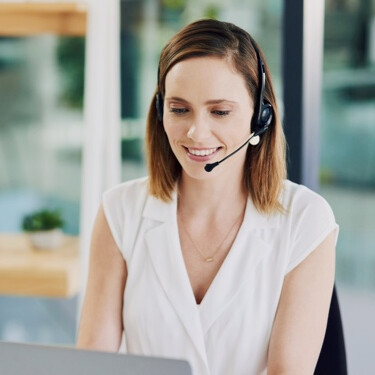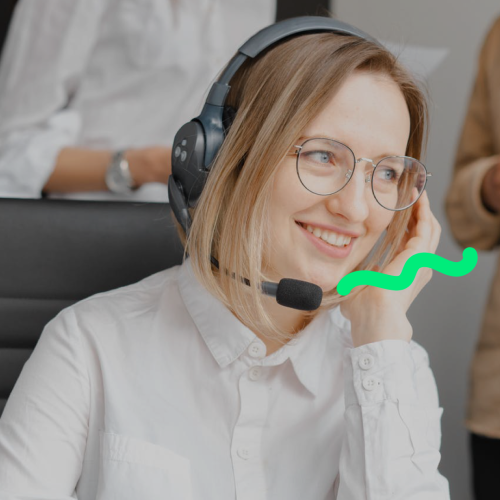All Categories
Featured
Table of Contents
- – What Is The Best Your Virtual Receptionist: Pho...
- – What Is The Best How To Answer The Phone Profe...
- – Which Is Best Melbourne Telephone Answering Se...
- – What Is The Best How To Start An Answering Se...
- – Who Is The Best Automated Business Phone Answ...
- – Which Is The Best Answering Service Operator...
What Is The Best Your Virtual Receptionist: Phone Answering Services In The World
This gadget and its followers were designed by Sava Jacobson, an electrical engineer with a personal consulting business. While early voice mail used magnetic tape innovation, the majority of modern equipment uses solid state memory storage; some gadgets utilize a mix of both, with a solid-state circuit for the outgoing message and a cassette for the inbound messages.
"toll conserving" listed below) (local phone answering service). This is helpful if the owner is screening calls and does not wish to speak to all callers. In any case after going, the calling celebration should be informed about the call having been responded to (for the most part this begins the charging), either by some remark of the operator, or by some greeting message of the TAD, or resolved to non-human callers (e.
This holds especially for the Littles with digitally kept greeting messages or for earlier machines (before the increase of microcassettes) with an unique limitless loop tape, different from a 2nd cassette, committed to recording. There have actually been answer-only gadgets without any recording abilities, where the greeting message needed to inform callers of a state of current unattainability, or e (phone call answering).
What Is The Best How To Answer The Phone Professionally (With Examples) To Get Right Now

about accessibility hours. In recording Little bits the welcoming normally includes an invite to leave a message "after the beep". A voice mail that uses a microcassette to record messages On a dual-cassette answerphone, there is an outgoing cassette, which after the specified number of rings plays a pre-recorded message to the caller.

Single-cassette voice mail include the outgoing message at the beginning of the tape and inbound messages on the staying area. They initially play the announcement, then fast-forward to the next available area for recording, then tape the caller's message. If there are many previous messages, fast-forwarding through them can trigger a substantial hold-up.
This beep is often described in the welcoming message, asking for that the caller leave a message "after the beep". Little bits with digital storage for the recorded messages do disappoint this hold-up, of course. A little may offer a push-button control center, where the answerphone owner can call the house number and, by getting in a code on the remote telephone's keypad, can listen to tape-recorded messages, or delete them, even when away from home.
Which Is Best Melbourne Telephone Answering Service : Virtual Reception Lg Or Whirlpool

Thereby the maker increases the variety of rings after which it responds to the call (generally by 2, leading to 4 rings), if no unread messages are presently kept, but answers after the set variety of rings (typically 2) if there are unread messages. This permits the owner to find out whether there are messages waiting; if there are none, the owner can hang up the phone on the, e.
Some makers likewise allow themselves to be remotely activated, if they have actually been switched off, by calling and letting the phone ring a specific a great deal of times (generally 10-15). Some provider desert calls currently after a smaller variety of rings, making remote activation impossible. In the early days of Little bits a special transmitter for DTMF tones (dual-tone multi-frequency signalling) was regionally needed for remote control, considering that the previously utilized pulse dialling is not apt to convey appropriate signalling along an active connection, and the dual-tone multi-frequency signalling was carried out step-by-step.
Any incoming call is not recognizable with respect to these homes in advance of going "off hook" by the terminal equipment. So after going off hook the calls need to be switched to proper gadgets and just the voice-type is right away accessible to a human, but possibly, however ought to be routed to a LITTLE BIT (e.
What Is The Best How To Start An Answering Service Business For Your Money
What if I informed you that you do not have to in fact choose up your device when responding to a consumer call? Another person will. So convenient, right? Responding to phone calls does not need someone to be on the other end of the line. Effective automated phone systems can do the technique simply as effectively as a live agent and sometimes even much better.
An automatic answering service or interactive voice response system is a phone system that communicates with callers without a live individual on the line - virtual telephone answering service. When companies utilize this technology, consumers can get the answer to a question about your company just by utilizing interactions established on a pre-programmed call flow.
Although live operators update the client service experience, numerous calls do not need human interaction. A simple documented message or instructions on how a customer can obtain a piece of information normally resolves a caller's instant requirement - virtual telephone answering. Automated answering services are a basic and reliable method to direct inbound calls to the best individual.
Who Is The Best Automated Business Phone Answering System Service?
Notice that when you call a company, either for assistance or item query, the very first thing you will hear is a pre-recorded voice welcoming and a series of options like press 1 for client service, press 2 for questions, and so on. The pre-recorded alternatives branch out to other options depending upon the consumer's choice.
The phone tree system helps direct callers to the ideal person or department using the keypad on a cellphone. In some circumstances, callers can utilize their voices. It deserves noting that auto-attendant choices aren't restricted to the ten numbers on a phone's keypad. When the caller has chosen their first choice, you can develop a multi-level auto-attendant that uses sub-menus to direct the caller to the ideal sort of help.
The caller does not need to communicate with an individual if the auto-attendant phone system can handle their concern. The automatic service can route callers to an employee if they reach a "dead end" and require help from a live representative. It is expensive to employ an operator or executive assistant.
Which Is The Best Answering Service Operator: What Is It? And How To ... Plan
Automated answering services, on the other hand, are substantially cheaper and provide substantial expense savings at approximately $200-$420/month. Even if you don't have actually devoted staff to manage call routing and management, an automated answering service improves productivity by permitting your team to concentrate on their strengths so they can more effectively spend their time on the phone.
A sales lead routed to client service is a lost shot. If a customer who has product concerns reaches the wrong department or gets insufficient responses from well-meaning workers who are less trained to manage a particular kind of concern, it can be a reason for disappointment and frustration. An automatic answering system can minimize the number of misrouted calls, thus assisting your workers make much better use of their phone time while maximizing time in their calendar for other jobs.
With Automated Answering Systems, you can produce a customized experience for both your staff and your callers. Make a recording of your primary welcoming, and simply update it frequently to show what is going on in your organization. You can create as numerous departments or menu options as you desire.
Table of Contents
- – What Is The Best Your Virtual Receptionist: Pho...
- – What Is The Best How To Answer The Phone Profe...
- – Which Is Best Melbourne Telephone Answering Se...
- – What Is The Best How To Start An Answering Se...
- – Who Is The Best Automated Business Phone Answ...
- – Which Is The Best Answering Service Operator...
Latest Posts
Professional Answering Service – Sydney 2060
Honest Automated Answering Service ( NSW)
Innovative Answering Services For Small Businesses – Cairns
More
Latest Posts
Professional Answering Service – Sydney 2060
Honest Automated Answering Service ( NSW)
Innovative Answering Services For Small Businesses – Cairns